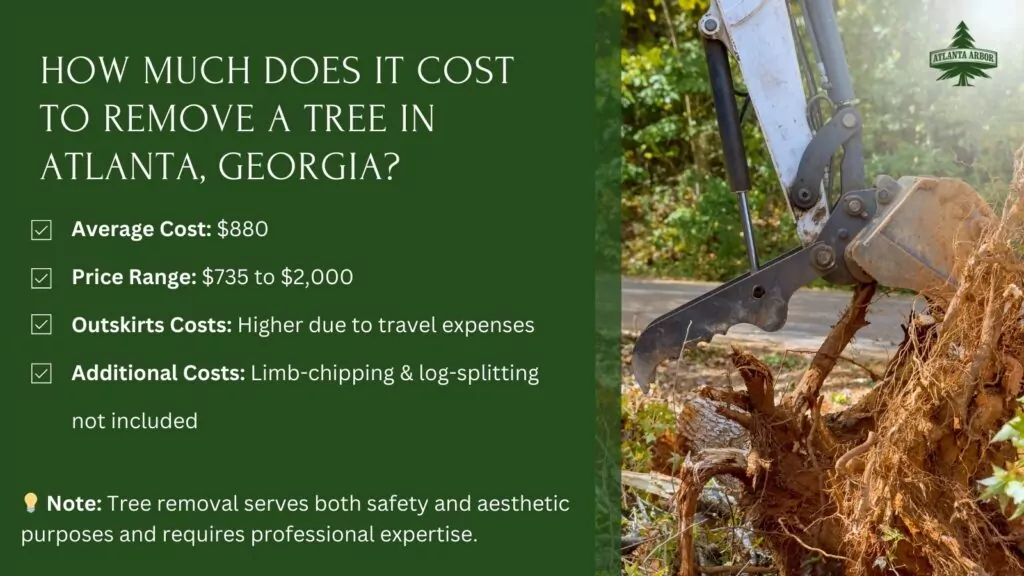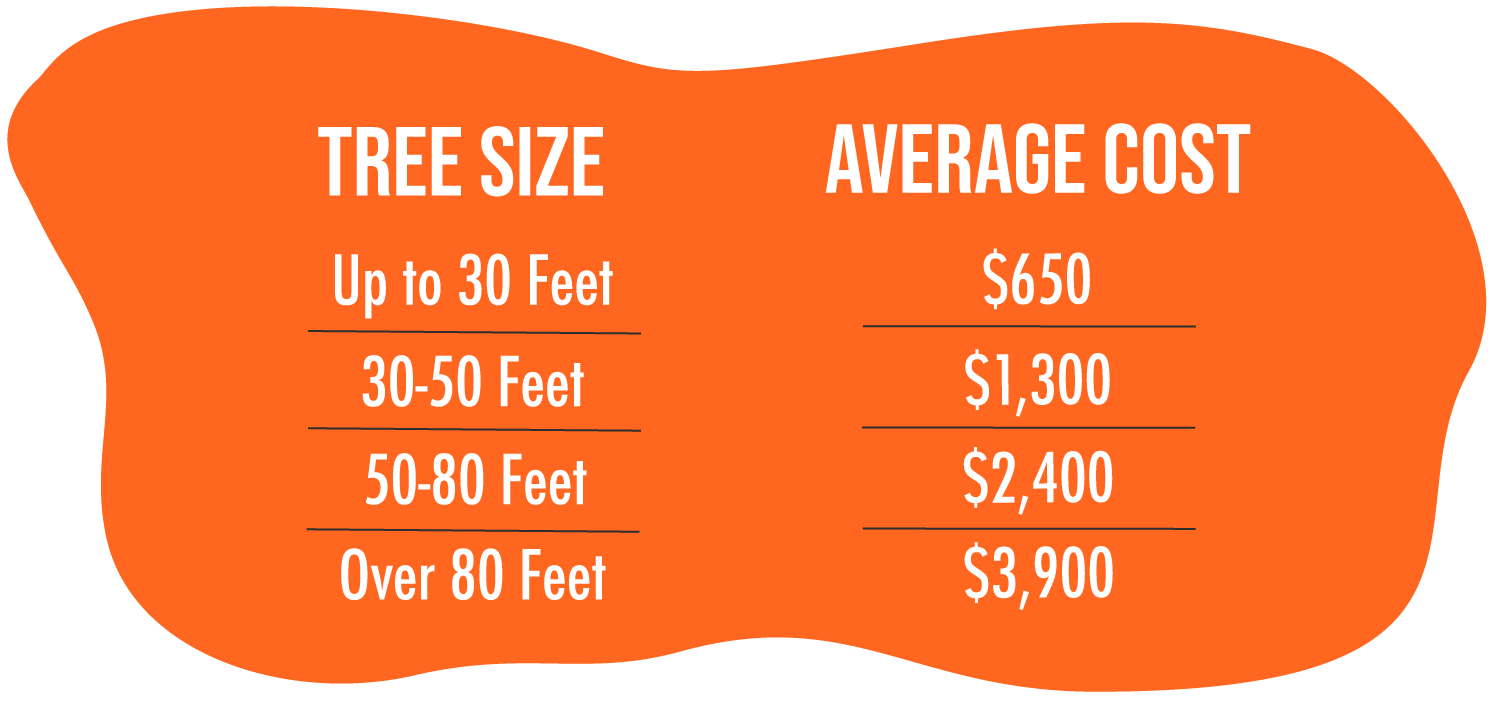Featured
Table of Contents
- – Richmond, KY Stump Grinding: Real Testimonials
- – Richmond, KY Arborist Success Stories: Costs
- – Specialized Tree Clearing Costs In Richmond, KY
- – Richmond, KY Tree Trimming Cost Options
- – Richmond, KY Tree Clearing Warning Signs: Pri...
- – What's The Average Cost For An Tree Removal I...
- – Richmond, KY Arborist Rates: What To Know
- – Trusted Tree Trimming In Richmond, KY: Cost ...
- – Richmond, KY Arborist Repair Cost Guide
- – Commercial Stump Removal Costs In Richmond, KY
- – Richmond, KY Tree Removal Reviews And Costs
- – Richmond, KY Tree Cutting: What Affects The ...
- – Finding Affordable Tree Cutting In Richmond,...
- – Richmond, KY Tree Clearing Charges: What To ...
- – Trusted Stump Grinding In Richmond, KY: Cost...

The subsections listed below supply more detailed details about rates, consisting of an average variety for each. TypeAverage Elimination CostPineConiferPalmMagnoliaArborvitaeAshCedarSweet GumEucalyptusSycamoreCypressOakMaplePoplar You can anticipate to pay in between to remove a pine, depending upon its size. Eliminating a pine is one of the more affordable jobs unless it is one that has been around for several years and is quite big.
Richmond, KY Stump Grinding: Real Testimonials
Pines also have a tap root that grows deep into the soil, which can prove to be more challenging to eliminate. The process itself involves a specialist cutting the tree, clearing the base, cutting the surface area roots, getting rid of the stump, and finally treating the soil. Without a professional hand, you risk leaving pine seedlings behind, which will fall from the roots of distressed pines.
Richmond, KY Arborist Success Stories: Costs
The U.S. national average for conifer removal is roughly to have the conifer reduced, hauled away, and the stump ground or removed totally. Conifers are typically easier to get rid of, and even though they can grow rather tall, they do not cost a fortune to eliminate. Conifers include pine, spruce, fir, and juniper trees.
Specialized Tree Clearing Costs In Richmond, KY
While conifers are beautiful, they eliminate native plants and certain types of grass (tree service). The typical rate of palm removal depends on the height as much as the type, varying from.
Richmond, KY Tree Trimming Cost Options
That is why it is very important to understand which type you are eliminating. While you do not need an herbicide to kill a palm tree, there are some steps your removal specialist will have to require to guarantee the job is done properly. There are two ways they can eliminate them: by chopping them down or digging them up.
Richmond, KY Tree Clearing Warning Signs: Pricing Edition
From there, they get rid of the real tree and then the stump. Expect to pay between to remove this type of tree, depending on the specific size and information of the task.
What's The Average Cost For An Tree Removal In Richmond, KY
There are three types: green, white, and black ash. White ash is understood for its lots of colors. With its gray-tinged bark, its leaves are green or purple in the spring and golden yellow or purplish-red in the fall. They enjoy moderate environments and great deals of sun. The green ash is called such due to its green or yellow foliage.
Richmond, KY Arborist Rates: What To Know

Due to the variation in height, the elimination cost difference is wide from. A coniferous, evergreen tree, the cedar is a durable species.
Trusted Tree Trimming In Richmond, KY: Cost Guide
The growth of false cedars differs from 50 feet up to 230 feet high. Property owners may pay anywhere from, depending on the roots. With star-shaped leaves and spectacular fall colors, the sweet gum is thought about a medium to big tree. Enjoying complete sun, the sweet gum can not endure pollution.
Richmond, KY Arborist Repair Cost Guide
It has a big root base of 40 to 50 feet, which impacts the removal expense. Generally, it costs between to get rid of a eucalyptus. Eucalyptus are not typical all over, however they are rather large compared to others, which is why even the smaller ones are so pricey to eliminate. Originally from Australia, eucalyptus are invasive plants that grow in thick groves that take out native plants.
Commercial Stump Removal Costs In Richmond, KY
There are a handful of methods to do this, consisting of burning, pulling, grinding, or killing them with herbicide. Anticipate to pay in between to get rid of sycamores, based on the height, trunk size, and amount of work included. Sycamores are among the biggest wood trees, typically ranging from 60 to 100 feet tall and as large as 15 feet.
Richmond, KY Tree Removal Reviews And Costs
The first 2 actions will expose the withins of the tree and cut off the flow of nutrients up the trunk. From there, an expert applies herbicide to eliminate the tree and cuts down the trunk. Then, they will eliminate the stump. Otherwise, new sprouts may grow from it. Lowering and removing a full-grown cypress might cost as much as.
Richmond, KY Tree Cutting: What Affects The Price
There are numerous different types of Cypress trees, but the most widespread are the Leyland, Arizona, Bald, and Italian. The Bald Cypress grows in swampy or really moist locations while the others take pleasure in a dry, warm, or hot climate (tree cutting). They can grow as high as 80 to 100 feet tall
Finding Affordable Tree Cutting In Richmond, KY

Prone to illness, the Cypress is one of the most valued woods for furniture. The average oak grows to around 60 feet, and depending upon the complexity of the removal, it costs an average of to remove. The specific size of your oak and the effort needed to fell it affect what you will in fact pay for removal together with any extra services like stump grinding.
Richmond, KY Tree Clearing Charges: What To Know
Access to the trees and the roots will also affect the general expense. Maples can quickly grow up to 100 feet or more and usually expense between to get rid of from your home. The last cost depends upon the real height and complexity of the task. Maples are usually amongst the more costly trees to remove due to the fact that of their size and the work included in the elimination.
Trusted Stump Grinding In Richmond, KY: Cost Guide
Poplars are giants of the species. Growing as high as 90 to 115 feet, these enormous timbers are primarily discovered in The United States and Canada and include the aspen, cottonwood, and balsam trees. Boasting an expansive root system, poplars can be pricey to remove when completely grown. The process to eliminate trees involves all the cutting and cutting of the branches and trunk, bringing it down to a stump.
Table of Contents
- – Richmond, KY Stump Grinding: Real Testimonials
- – Richmond, KY Arborist Success Stories: Costs
- – Specialized Tree Clearing Costs In Richmond, KY
- – Richmond, KY Tree Trimming Cost Options
- – Richmond, KY Tree Clearing Warning Signs: Pri...
- – What's The Average Cost For An Tree Removal I...
- – Richmond, KY Arborist Rates: What To Know
- – Trusted Tree Trimming In Richmond, KY: Cost ...
- – Richmond, KY Arborist Repair Cost Guide
- – Commercial Stump Removal Costs In Richmond, KY
- – Richmond, KY Tree Removal Reviews And Costs
- – Richmond, KY Tree Cutting: What Affects The ...
- – Finding Affordable Tree Cutting In Richmond,...
- – Richmond, KY Tree Clearing Charges: What To ...
- – Trusted Stump Grinding In Richmond, KY: Cost...
Latest Posts
Urgent Tree Removal Costs In Riverton, UT
College Station, TX Area Tree Trimming Costs: Complete Guide
Elkton, MD Tree Removal Disposal Costs
More
Latest Posts
Urgent Tree Removal Costs In Riverton, UT
College Station, TX Area Tree Trimming Costs: Complete Guide
Elkton, MD Tree Removal Disposal Costs